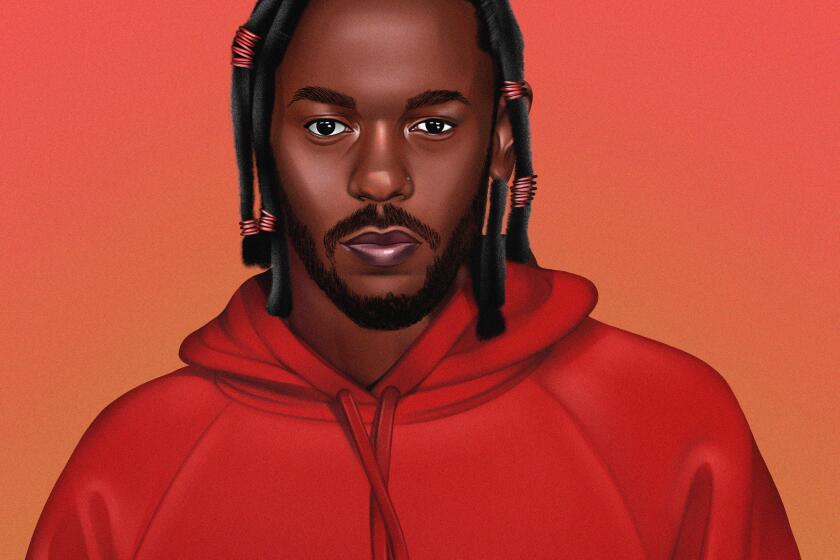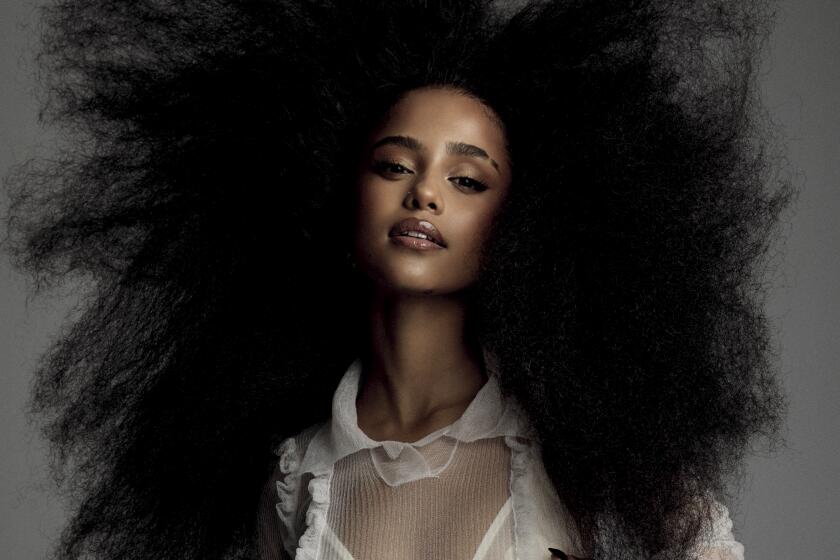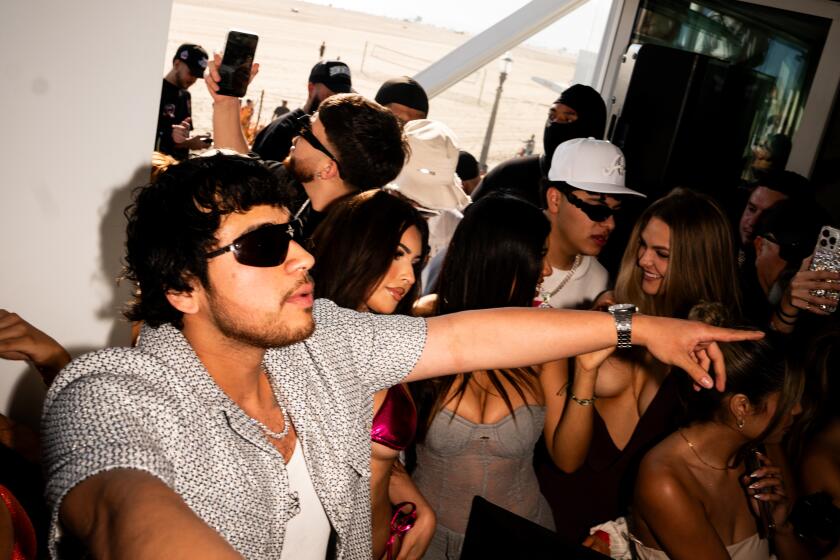Taylor Swift gets snubbed for best album, and other Grammy nomination surprises
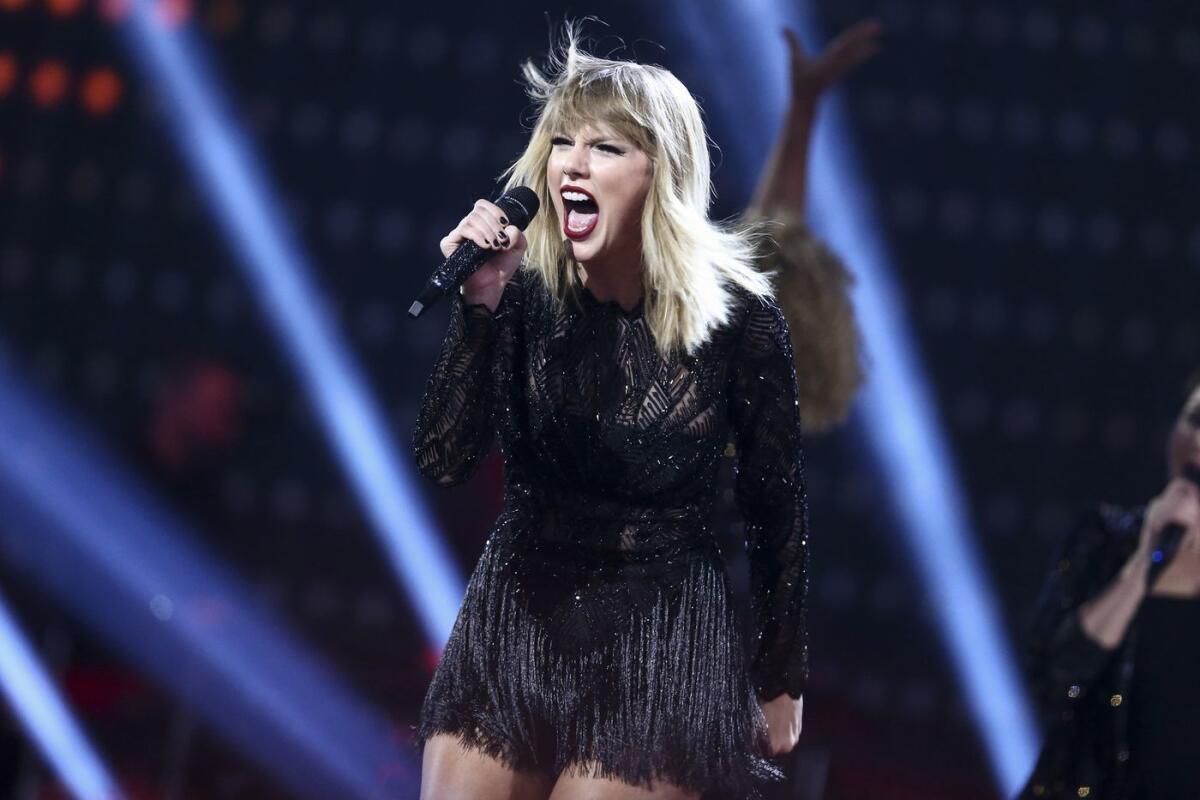
Those who follow commercial pop music likely predicted that 2019 breakout artists Lizzo and Billie Eilish would earn a lot of love at the 62nd Grammy Awards, which they did. Those who bet against Lil Nas X’s “Old Town Road” failed to grasp what’s been obvious to most everyone else all year: It’s an eminently lovable and groundbreaking hit.
But a lot of stuff didn’t go as planned. Bruce Springsteen didn’t get nominated during one of the most fruitful periods of his life, for example. Beyoncé didn’t earn an album of the year nod for “Homecoming: The Live Album.” Kanye West wasn’t named the Grammy Awards’ Greatest Artist of All Time Ever.
Below, some of the more notable snubs and surprises:
Little love for Taylor Swift’s “Lover.” Few artists in contemporary music have mastered the art of the album rollout as, well, masterfully as Taylor Swift, and this year’s model, “Lover,” was as flawless as ever. Going into Wednesday’s announcement, work from the album was expected to garner half a dozen nominations. Instead, Swift landed three, and only one of them was in a major category: the title track from “Lover” earned her a song of the year nod.
The album of the year slight was made more acute because, as the year’s top seller, “Lover” came with quite the pedigree.
Yes, her previous album, 2017’s peeved, divisive “Reputation,” failed to earn an album nomination. But Swift, who has banked 35 Grammy nominations in her career, seemed to take no chances this time. She lifted the veil on her once-neutral politics by releasing the LGBTQ-advocating song “You Need to Calm Down.” She expressed support for the Democratic candidate in Tennessee’s gubernatorial election. She did the interviews and the photo shoots. She made news, and avoided it, like a pro.
All that righteous energy and savvy marketing power makes it quite the shocker that “Lover” didn’t earn an album of the year nomination. Work from “Lover” was eligible in three of the four major categories. It could be argued that Swift didn’t help her cause when she began a public feud with industry titans Scooter Braun and Scott Borchetta after they bought her back catalog. But who roots against the artist in such tussles?
Tanya Tucker snags song of the year nomination for “Bring My Flowers Now.” Those who picked Tanya Tucker, 61, for their fantasy Grammy team won big this year. First nominated in 1972 for her country crossover smash “Delta Dawn,” Tucker hadn’t earned much notice since her last nod in 1993.
A quarter of a century later, the Tucker-sung “Bring My Flowers Now,” written with Brandi Carlile, Phil Hanseroth and Tim Hanseroth, landed a surprise song of year nomination. Taken from her Shooter Jennings and Brandi Carlile co-produced album “While I’m Living,” the song’s lyrics request a simple favor: “Bring my flowers while I’m livin’ / I won’t need your love when I’m gone.” (The same could be said for awards trophies.) It’s a classic country kind of couplet, addressing love and death in equal measure. Which is to say, not an expected Grammy choice in 2019.
Also surprising? Tucker was the only country singer to earn a major nomination. Unlike last year, when Carlile and Kacey Musgraves were vying for a trophy (Musgraves won album of the year for “The Golden Hour”), Tucker will represent Nashville come February. That is, unless you consider Lil Nas X’s “Old Town Road” to be a country song — in which case, country had a banner year.

Underdogs continue to outperform. In 2011, a shocked Justin Vernon accepted his best new artist trophy for Bon Iver’s “Bon Iver” while wearing a sport coat he looked to have borrowed from the maitre d’. Since then, the artist hasn’t exactly chased the charts, and with onetime collaborator Kanye West chasing the Lord, Vernon’s cred has waned. Bon Iver’s most recent album, “I,I” is as curious as its name, a challenging avant-folk album that has barely resonated in the commercial realm.
And yet, somehow, amid all the centrist singer-songwriters gunning for Grammys, Vernon’s more experimental, oft-difficult tones have proven irresistible to voters — or at least the part of the electorate who didn’t consider his early victory an aberration.
And though her music is in a whole other constellation than Bon Iver’s —and she wears better clothes — the artist who performs as H.E.R. has carved out a similarly devoted demographic among Grammy voters. Hardly a household name, she’s a critic’s darling whose allure has nestled her way into the hearts of listeners eager to explore the creepier, more minimal side of rhythm & blues. The voters rewarded her adventure by giving her album “I Used to Know Her” a best album nomination, and her song “Hard Place” was acknowledged in both major song categories.
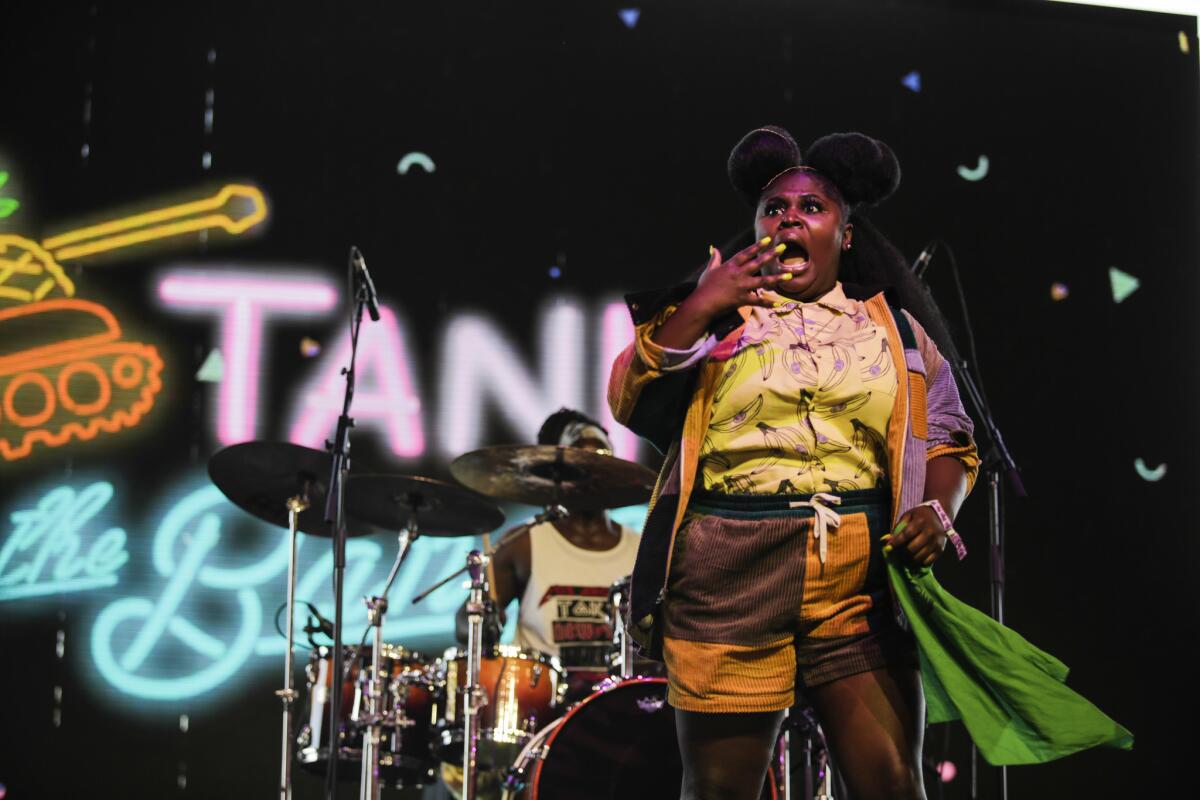
Best new artist award goes deep. By definition a nod to rising artists on the verge of breakout, this year the best new artist category celebrated generational shift with predictable, and deserved, nominations for artists Billie Eilish, Lizzo and Lil Nas X. Ditto both singer-songwriter-producer Maggie Rogers and Spanish pop sensation Rosalía, both of whom performed at Coachella earlier this year.
Three of the eight, though, have barely registered in the mainstream conversation. The Austin, Texas, hybrid funk-soul band Black Pumas hadn’t even earned their own Wikipedia entry until Wednesday, but somehow made enough fans inside the Grammy electorate to make the cut for their self-titled debut album.
The inventive New Orleans band Tank and the Bangas first made news when it won NPR’s “Tiny Desk Contest” in 2017. The rhythm-driven funk outfit channeled that success into an album called “Green Balloon,” which helped earned them the nomination.
And the magnetic British folk and Americana singer Yolanda Quartey, who performs as Yola, has earned massive respect overseas. She made a dent Stateside this year with “Walk Through Fire,” which was produced by the Black Keys’ Dan Auerbach.
More to Read
The biggest entertainment stories
Get our big stories about Hollywood, film, television, music, arts, culture and more right in your inbox as soon as they publish.
You may occasionally receive promotional content from the Los Angeles Times.




